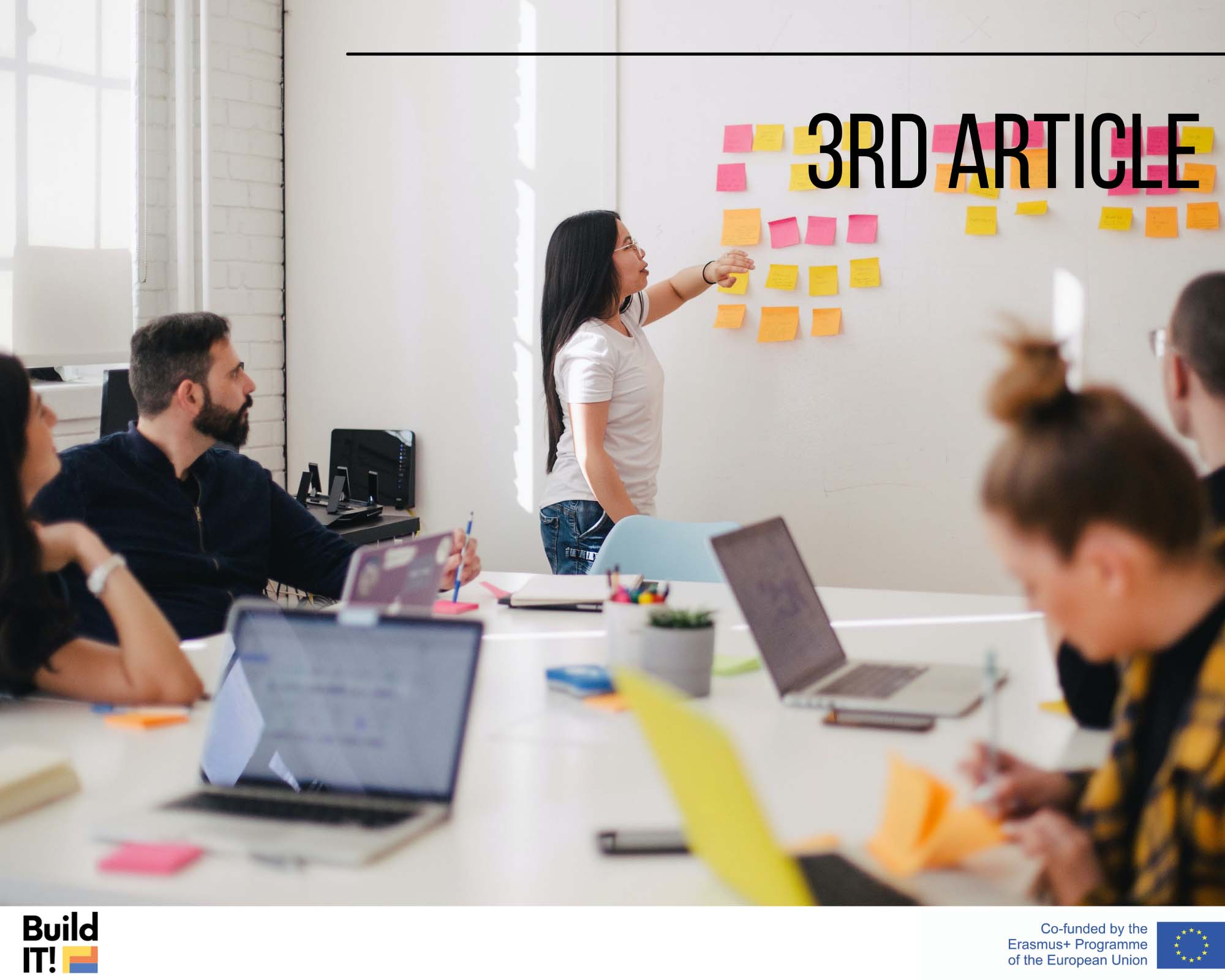Pilot Phase 2

Following the design of the 12 BBU activities, and the training of 10 educators per partner country (between August 2021 and January 2022), pilot phase 2 aimed to test the activities with adult learners.
The aim of the activity testing was to collect feedback to improve the content of the BBU manual, including feedback from learners and suggestions from adult educators.
For this purpose, at the end of each activity test, adult learners completed an evaluation form. In addition, the adult educators were asked to briefly answer these questions: How does it work? Positive and negative points? Suggestions?
The number of adult learners who had to try out 2 to 3 BBU activities was 100 per country (i.e. 500 learners in total). The target was reached as 670 adult learners experienced the 12 BBU activities.
1. Implementation
The pilot phase 2 was implemented as follows:
PARTNERS
BBU ACTIVITIES CREATED
BBU ACTIVITIES TESTED
AUDIENCES
PROFIL OF ADULT LEARNERS WHO TESTED THE ACTIVITIES
DAFO
1. Empathy / ability to build relationship "The empathy tower & the relationships bridge"
2. Negotiation skills "The power-tower of negotiation"
1. Learning orientation "Quick Glance"
2. Decision making "Bartering Building Blocks"
100 persons
・NEET with university studies
・Adults at risk of poverty and/or social exclusion
Ligue de l'Enseignement Nouvelle-Aquitaine
1. Flexibility and adaptability "Puzzles for the pros"
2. Collecting and proceeding information "Construction of abbreviations"
3. Intercultural skills and global awareness "The values and objectives of the European Union"
1. Organization and time management "The bigger picture"
2. Leadership "Shapes in space
156 persons
・Adults in professional reorientation
・Low skill adults
・Migrants
・NEETs with low skills
Wyższa Szkoła Biznesu I Nauk O Zdrowiu
1. Teamwork "Common building a house"
2. Strategical and innovative thinking "Strategy of building the bridge"
3. Problem solving "How to solve it?"
1. Empathy / ability to build relationship "The empathy tower & the relationships bridge"
2. Negotiation skills "The power-tower of negotiation"
196 persons
・Adults with mental disorders and physical limitations with disability certificates
・Students
Eurocrea Merchant
1. Organization and time management "The bigger picture"
2. Leadership "Shapes in space
1. Teamwork "Common building a house"
2. Strategical and innovative thinking "Strategy of building the bridge"
3. Problem solving "How to solve it?"
110 persons
・Low skill adults
・NEET with university studies
Topcoach
1. Learning orientation "Quick Glance"
2. Decision making "Bartering Building Blocks"
1. Flexibility and adaptability "Puzzles for the pros"
2. Collecting and proceeding information "Construction of abbreviations"
3. Intercultural skills and global awareness "The values and objectives of the European Union"
108 persons
・Low skill adults
・NEET with university studies
2. Audiences
The group of adult learners included:
・NEET with university studies: 170 persons - 25%
・Migrants: 124 persons - 19%
・Students: 130 persons - 19%
・Low skill adults: 110 persons - 16%
・Adults with mental disorders and physical limitations with disability certificates : 66 persons - 10%
・NEET with low skills: 34 persons - 5%
・Adults at risk of poverty and/or social exclusion: 20 persons - 3%
・Adults suffering from illiteracy: 12 persons - 2%
・Adults in professional reorientation: 4 persons – 1%
3. Results
Adult learners:
After the adult learners completed a questionnaire at the end of the activities, positive results emerged.
The average overall score is 4.2 for all the activities tested.
The rating for the 12 activities is between 3.9 and 4.4 on a scale of 5.
The majority of adult learners liked:
・The group activity (exchanges, involvement, motivation) : 25%
・Experimentation (building, manipulating) : 25% 16%
・The method 15%
BBU activities allow adult learners to learn in a dynamic, fun, entertaining, engaging, educational, new, original, different environment. For adult learners, it is an entertaining, relaxing and different way to learn.
with one reservation on the following points:
・Timing of the activity: 45%
・Theoretical input 23%
More time should be spent on:
・Explaining the theory (contextualising the skill in real life)
・Carrying out the activities (in connection with the playtime)
96% of the learners said that they would like to experiment with the BBU activities again.
Educators
When carrying out the activities, the educators noted a very good results in terms of:
・Understanding and learning of skills
・The provision of materials/games to support the acquisition of skills
Like the adult learners, the educators felt that it was important to:
・Highlight the theory, its understanding and its application in real life,
・Adjust the amount of BBU material (number of building blocks, difficulty of puzzle ....)
・Adjust the time for carrying out the activity (duration of the games).
All this feedback are positives and proves the relevance of the BBU methodology.
THE REPORT OF THE PILOT PHASE 2 AND THE SUMMARY OF THE REPORT ARE AVAILABLE HERE.
4. And now
The consortium therefore aims to update the intermediate manual using all th the feedback received.
In addition, in relation to the diversity of adult learner profiles, the consortium decided to propose recommendations to be integrated into the final BBU manual for:
・specific audiences (visually impaired people, migrants, elderly people with disabilities),
・the implementation of online BBU activities (in case of complex heath situations or non-mobility of the audience)
・educators (accompanying adult learners carrying out activities).
Moreover, each activity will be complemented by the proposal of a PowerPoint (added value) to support the understanding of the activity / targeted skill.